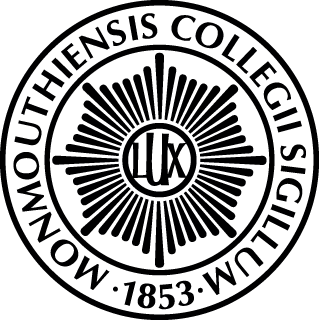|
|
|

|
![]()
Employers normally assume that a job applicant with good grades in his/her major and good recommendations is likely to be able to perform the specific requirements of the position. The edge in the job search and in career advancement often goes to the individual who brings additional abilities needed by the firm. Survey after survey of personnel managers reveals that, regardless of job type, the top skills sought by employers include written and oral communications skills, ability to work in groups and teams, interpersonal skills, and planning and problem-solving abilities. The courses that make up the Communication minor are specifically designed to enhance student abilities in just those areas. If you are a Business or Accounting Major, you may want to consider augmenting your program of study with the Communication minor.
Requirements for the Communication Minor include five courses plus workshop credit as shown below. (Recommended options for Business and Accounting Majors in bold)
- CATA 101 – Fundamentals of Communication,
- at least one semester hour of workshop credit (CATA 125 or 126)
- Completion of the Communication Concentration, consisting of
- CATA 231 – Interpersonal Communication or CATA 235 – Small Group Communication,
- CATA 233 – Advanced Public Speaking,
-
and two
courses from
- CATA 333 – Organizational Communication,
- CATA 335 -- Argumentation,
- CATA 337 – Communication Criticism
- CATA 339 – Persuasion
Course Highlights
CATA 125 - Print Media Workshop involves students in participation with one of the College’s print media, most often the Courier. Working during their free time, workshop participants will write news stories or participate in layout, advertising or other business of newspapers. Not only does the course develop written communication skills, it also involves the student in a real working organization with the added opportunity of obtaining organizational and leadership experience. This course can be repeated multiple times for additional, pass/fail credit.
CATA 126 - Electronic Media Workshop involves students in participation with one of the College’s electronic media, most often WMCR radio or WMC-TV (cable). Working during their free time, workshop participants will do a radio show or participate in programming, advertising or other business of broadcasting. Not only does the course develop oral communication skills, it also involves the student in a real working organization with the added opportunity of obtaining organizational and leadership experience. This course can be repeated multiple times for additional, pass/fail credit.
CATA 235 – Small Group Communication focuses on the dynamics of who people work in groups and teams. Students learn highly valuable skills in team work and group leadership along with developing abilities to use problem-solving and decision-making methods essential in modern organizations.
CATA 333 – Organizational Communication introduces the student to the major theories (e.g. traditional theory, human relations theory, cultural theory, etc.) of how organizations function with a special emphasis on how each theory reveals the role of communication processes in the effective management of people and the firm. The course also offers a strong component emphasizing the role communication plays in your success in your future career. The laboratory portion of this course engages students in an extended simulation as employees in an imaginary training and development company. Thus, the lab allows students to gain experience in one of the hottest areas in the business world today, development of training programs, while providing a realistic immersion in an experience of work in a professional organization. The major assignment for this course often results in project of considerable interest to prospective employers.
CATA 339 – Persuasion focuses on the theory and practice of the most important of all communication abilities, the ability to influence others. With lots of real-world and practical examples, students discover how to use persuasion theory to understand others and create more effective persuasive messages. Central to the course is the development of persuasive campaigns of the sort common in many businesses and industries. The major assignment for this course often results in project of considerable interest to prospective employers.
CATA News
Welcome back!
Make sure to check your schedules for and CATA Classes
Seniors - Don't Forget Portfolios are due March 15!!
Auditions for "Trojan Women" are this week. See Doc Wallace with questions.
![]()
